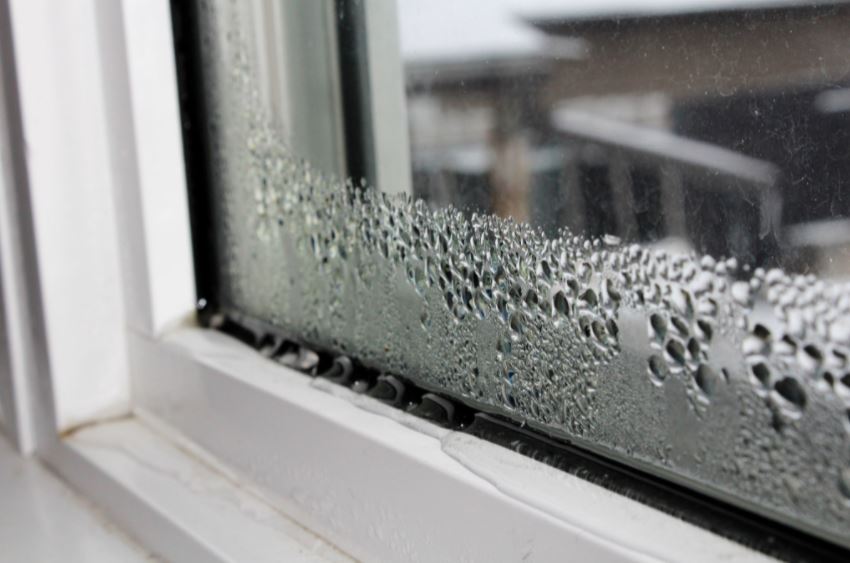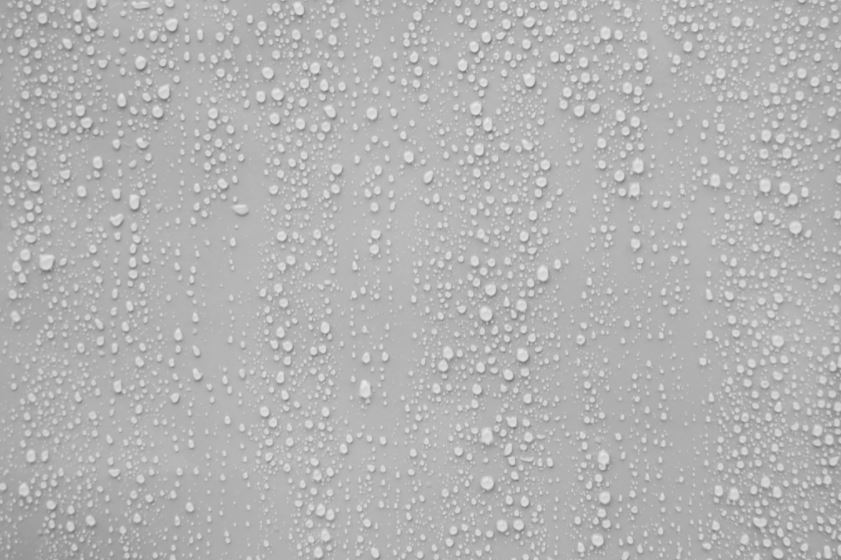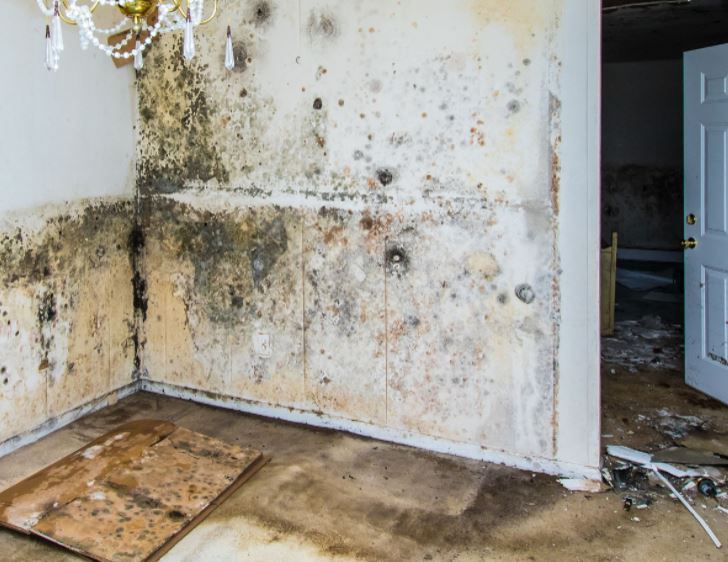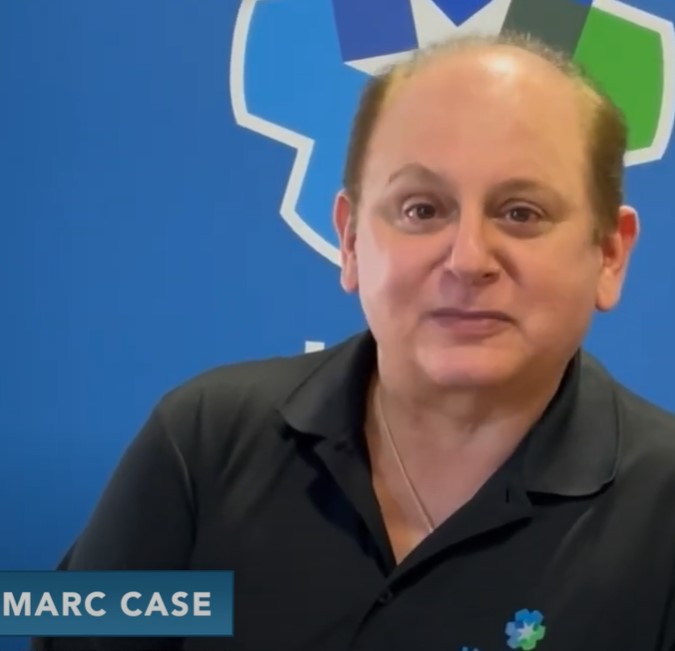
Mold is an unwelcome presence in any home or business. It can cause a variety of health issues and can be difficult to remove once it takes hold. One factor that contributes to mold growth is condensation. Condensation occurs when warm air meets cold surfaces and forms droplets of water.
Within our service area of Ocean County and Monmouth County, New Jersey, scientific research tells us that “in coastal regions with mild winter climate, absorbed surface condensation is probably unavoidable.”
This type of moisture buildup creates the perfect environment for mold spores to grow and thrive. Due to this it is important for property owners to understand how condensation affects the temperature and their indoor air quality.
What Is Condensation?
Condensation forms when water vapor in the air, which is essentially water in its gas form, turns into liquid. This happens when the moist air gets cool enough that the vapor can no longer exist as a gas. As the water vapor condenses, it forms droplets on surfaces such as windows, mirrors, or metal.
It’s an everyday occurrence that we often take for granted, but understanding the science behind it can help us avoid problems such as mold or moisture damage in our homes, cars, and other closed spaces. So the next time you notice droplets forming on your drink or a cold surface somewhere, know that it’s all thanks to the phenomenon of condensation!
Rust Can Be A Sign Of Condensation
The fact that this drainpipe has rust shows that it gets wet. To stop condensation, the pipe needs to be sealed.
Renters should tell their landlord or building owner, manager, or superintendent right away about any plumbing leaks or water issues. If water problems don’t get fixed, you may want to talk to health or housing officials at the local, state, or federal level. You can also call the health department of your state.
What Kind Of Mold Growth Comes From Condensation?
Condensation is a common issue in many homes, especially during the cold and damp winter months. Unfortunately, this excess moisture can lead to the growth of mold if left unchecked. There are several types of mold that can thrive in these damp environments, including black mold, green mold, and white mold. These molds can cause a number of health problems, including allergenic responses, respiratory issues, and more.
When eliminating mold growth, it’s important to address the issue of condensation as soon as it arises. This may involve improving ventilation in affected areas, using dehumidifiers, and regularly wiping down any areas prone to moisture buildup. By taking these simple steps, you can keep the walls of your home free from potentially harmful mold growth.

How to prevent condensation:
- Lower the humidity
- Open doors and windows when you can and use fans as needed to increase ventilation or air movement.
- Cover cold surfaces, such as cold water pipes, with insulation.
- Raise the air temperature.
What Are The Health Risks Associated With Mold Growth?
Respiratory problems:
In 2004, the Institute of Medicine (IOM) found that there was enough evidence to link indoor exposure to mold with upper respiratory tract symptoms, cough, and wheeze in otherwise healthy people, with asthma symptoms in people with asthma, and with hypersensitivity pneumonitis in people who are prone to that immune-mediated condition.
Mold spores can penetrate your lungs and cause respiratory problems, including asthma, coughing, sneezing, and shortness of breath. This can be particularly dangerous for young children, the elderly, and people with pre-existing respiratory conditions. Prolonged exposure to mold can also cause lung infections. This could be deadly for some so it is extremely important to prevent mold growth as much as possible.
Allergic reactions:
Mold spores can trigger allergic reactions in sensitive individuals, which may include red and itchy eyes, skin rashes, sneezing, and even fever. These reactions occur when the immune system overreacts to the presence of mold.
Neurological problems:
Mycotoxins produced by certain types of mold can lead to neurological symptoms such as headaches, dizziness, memory loss, and confusion. Prolonged exposure to these toxins can even cause more severe neurological problems such as tremors and seizures.
Fungal infections:
Fungal infections can be caused by breathing in or touching mold spores. These infections can be severe, especially for individuals with weakened immune systems. Common fungal infections caused by mold include aspergillosis and histoplasmosis.
Skin irritation:
Contact with mold can cause skin irritation, rashes, and itching. This is particularly true for individuals with sensitive skin. In severe cases, long-term exposure to mold can cause chronic skin conditions such as eczema.
How To Prevent Condensation In Your Home
Condensation and humidity in the home can be frustrating and even damaging, but it doesn’t have to be a constant battle. One of the most effective ways to prevent condensation is to make sure you have adequate ventilation in your living spaces. This can be achieved by opening windows regularly as to let in fresh air, especially when cooking or showering. Poor ventilation speeds up the build up of condensation especially when you take a hot shower.
It’s also important to ensure that your heating system is working efficiently and producing enough heat to keep your home warm and dry. If you’re still struggling with condensation, consider investing in dehumidifiers or air purifiers, which can help remove excess moisture from the damp air. By taking these steps, you can enjoy a more comfortable, dry home and avoid the negative effects of condensation.
The EPA tells us “If you see condensation or moisture collecting on windows, walls or pipes act quickly to dry the wet surface and reduce the moisture/water source. Condensation can be a sign of high humidity.”

When To Call A Pro To Help Remove Mold Growth
Mold is a common problem in indoor environments, and it can lead to serious health issues if not addressed promptly. If you notice mold growing in your Bayville, NJ home or workplace, it’s important to know when to call a professional to deal with the problem. Generally, if the area affected by mold is larger than ten square feet, or if the mold has spread to multiple rooms or levels of your building, it’s time to seek the help of a certified mold remediation specialist like MasterTech Environmental Jersey Shore.
If you have any health concerns or pre-existing conditions that could be worsened by exposure to mold, it’s best to err on the side of caution and call in a professional as soon as possible. Remember, mold is not something to take lightly, so don’t hesitate to seek expert advice if you suspect a problem in your home or workplace.
Mold Growth Caused By Condensation In Ocean County, New Jwersey
Condensation is a common problem in many homes and businesses. The easiest method of preventing mold growth is addressing these issues quickly. By understanding what causes condensation, how it contributes to mold growth, and the health risks associated with this type of moisture buildup, you’ll be better equipped to prevent or address any potential issues caused by condensation in your home or workplace.
If all else fails, don’t hesitate to call on expert help from certified professionals who are experienced in dealing with these types of problems. Remember that addressing mold promptly will save you time and money down the road while also preserving your indoor air quality.

